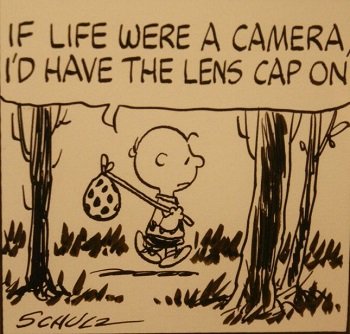A Metaphorical Platypus and the Art of Rhetoric
What is a rhetorical question?
You probably know the answer to that one, which means you also know you’re not expected to say it out loud.
What, though, is rhetoric?
That’s what this article is about.
Rhetoric is a very old way of thinking about language. Alongside grammar and logic it was one-third of the trivium, the three verbal disciplines you really had to have a handle on if you wanted other rich Romans to take you seriously. Their influence is attested to in the word ‘trivial’, which has slid from meaning ‘basic’ or ‘fundamental’ to meaning ‘unimportant’.
It might not be on curricula any longer, but it’s still with us. If you’ve ever banged your head off your exam-hall desk trying to remember how to spell onomatopeia, for example, that’s down to rhetoric. It centred on mastering the use of figures of speech, onomatopeia and its minefield of Os among them.
[pullquote] If grammar and logic were the nuts and bolts of language, then rhetoric was the icing on those nuts and bolts. [/pullquote] It was not just the art of speaking, but the art of speaking beautifully. If grammar and logic were the nuts and bolts of language, then rhetoric was the icing on those nuts and bolts. Any master of rhetoric would vomit with rage at my mixing that metaphor that mixily.
We know that simile and metaphor are figures of speech. Similes and metaphors, though, are only two amongst literally hundreds more figures. And, even if we don’t speak about them, they still abound in speech. (Particularly in poetry, where the use of language is so much more self-conscious and heightened.)
SOME COMMON FIGURES YOU MIGHT KNOW, BUT MIGHT NOT KNOW YOU KNOW
 Take synecdoche, symbolising the whole from part of the whole. If you understand that Uncle Tim – who’s having a midlife crisis – means “my new Porsche” when he says “my wheels”, then you understand synecdoche. If a roof means a house, if a sail means a ship, if a gun means a soldier, you can use synecdoche.
Take synecdoche, symbolising the whole from part of the whole. If you understand that Uncle Tim – who’s having a midlife crisis – means “my new Porsche” when he says “my wheels”, then you understand synecdoche. If a roof means a house, if a sail means a ship, if a gun means a soldier, you can use synecdoche.
If you want to be picky, then ‘gun=soldier’ isn’t actually synecdoche unless the gun is a bio-mechanical gun built into his cyborg arm. It’s not part of him, so gun=soldier can’t be synecdoche. It’s a metonym, the figure of speech whereby something is symbolised by something else with which it is intimately associated.
If you understand that “the White House” can mean “Barack Obama and his staff”, then you understand metonym.
If you were a boy with long hair in Dublin in the 90s and tough lads used to yell “Y’BIG CURE” at you, then you were a victim of stereotyping metonym. Maybe you didn’t even like The Cure. People can be so judgmental.
If you have ever had a petname for your significant other that upset your friends with its emotional gooeyness, there is a good chance that it was an example of metonym. No one ever needed to know how much you liked your Little Chubby Cheeks’ little chubby cheeks.
[pullquote] if someone on the internet calls you “a radiant nymph” and you call him “an egregious neckbeard”, then you are using metonym. [/pullquote] Equally, in the other direction, if someone on the internet calls you “a radiant nymph” and you call him “an egregious neckbeard”, then you are using metonym. The insult’s sting doesn’t come from his having a neckbeard. It comes from his neckbeard’s intimate association with other lumpenly entitled men on the internet. (Is calling someone “a radiant nymph” a metonym for beauty, or is it just really pretentious? Discuss.)
As a final example, antimeria is a figure of speech that is both common and loads of fun. You’ll like it, I promise. You probably already like it.
There’s a great example in Ted Hughes’ Pike where he describes the “green tigering the gold.” Sticking with nature, you have Dylan Thomas in Poem in October describing a “heron-priested shore”. A favourite of mine is in King Lear, where Edgar thinks out loud to the audience that Lear has been “childed as I fathered.”
Calvin of Calvin and Hobbes did a meta-antimeria when he said that “verbing weirds language.”
You get the idea; antimeria is any unusual use of a word, typically so that it functions in a way that it doesn’t normally function. Verbs become nouns, nouns become adjectives, adjectives become verbs. Or, using antimeria, we could say:
Verbs noun.
Nouns adjective.
Adjectives verb.
 Antimeria is particularly good, because it’s so flexible; it’s a huge part of the process by which groups of people develop their own personalised languages or “idiolects”. For example: Shinx is a pokemon. My friend Ruth thought that “on the Shinx” sounded like something that could plausibly mean “out on the lash”. So then that was what it did mean, to us at least. From which, we got the verb form “Shinxing”, the noun form “a Shinxer”, and the adjective form “absolutely Shinxed.”
Antimeria is particularly good, because it’s so flexible; it’s a huge part of the process by which groups of people develop their own personalised languages or “idiolects”. For example: Shinx is a pokemon. My friend Ruth thought that “on the Shinx” sounded like something that could plausibly mean “out on the lash”. So then that was what it did mean, to us at least. From which, we got the verb form “Shinxing”, the noun form “a Shinxer”, and the adjective form “absolutely Shinxed.”
Still don’t believe me? Xander asking Buffy if anyone else feels “like they’ve been Keyser Soze-d” is antimeria. If it was in Buffy, it’s culturally significant. End of.
[pullquote] All of which shows fairly convincingly that you don’t need the formalised vocabulary of rhetoric to use it. [/pullquote] We all do it all the time anyway. So why learn the formalised vocabulary? Because investigating that formalised vocabulary can get your imagination going, and encourage you to use language in ways you haven’t before. A little goes a long way, and in that respect it’s no different from any other sphere of knowledge.
Knowing music theory is fun when you can fluently doodle in different keys and styles, less so when you’re asked the difference between a flat mediant dominant-7th and a sharp supertonic german-6th. (Can you believe he didn’t know? I almost spat out my sherry!)
Taxonomy is probably fun if you’ve just discovered the platypus, less so if you’re trying to differentiate 30 different species of slime mold that don’t even have poisonous thumbs.
So what are you waiting for? Get out there and ask some rhetorical questions. Discover a metaphorical platypus. Earn yourself a metonymic nickname like The Human Encyclopedia. You’ll be the envy of all your rich Roman friends.

